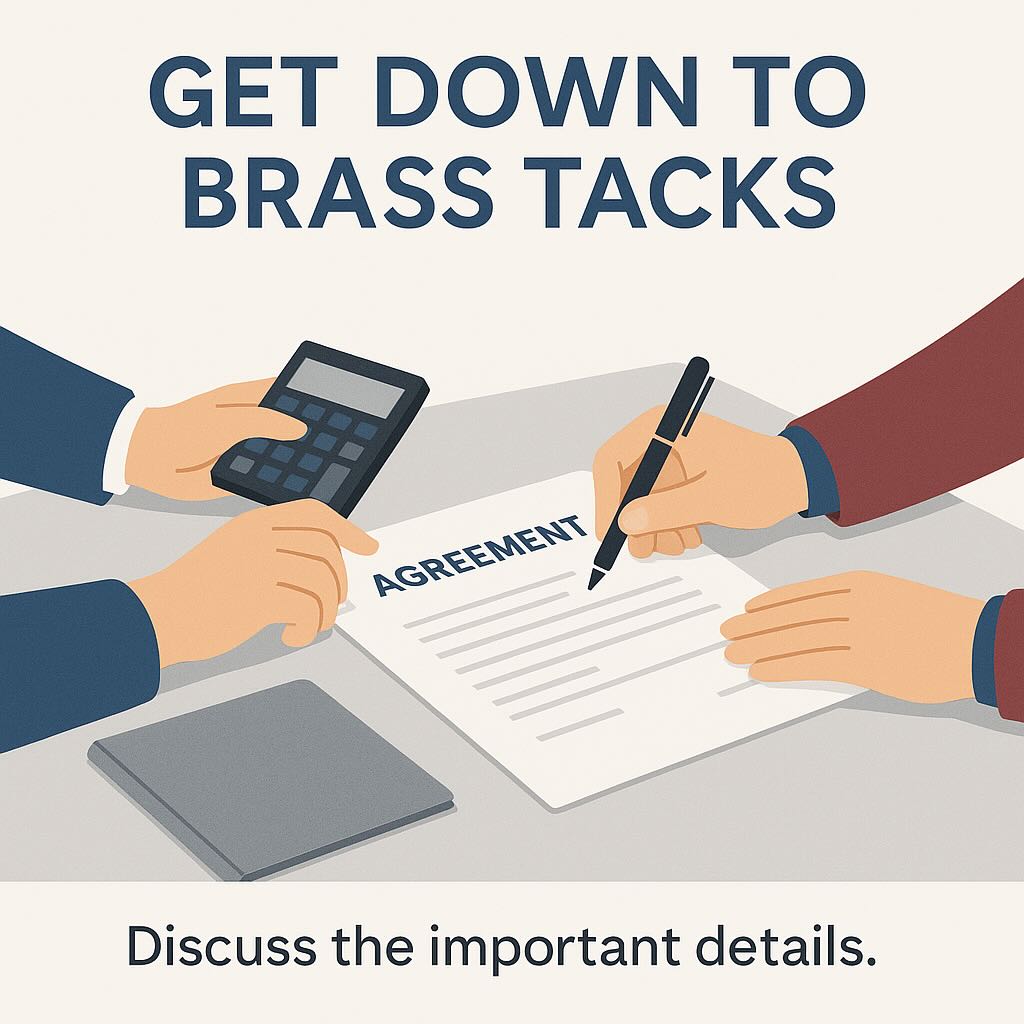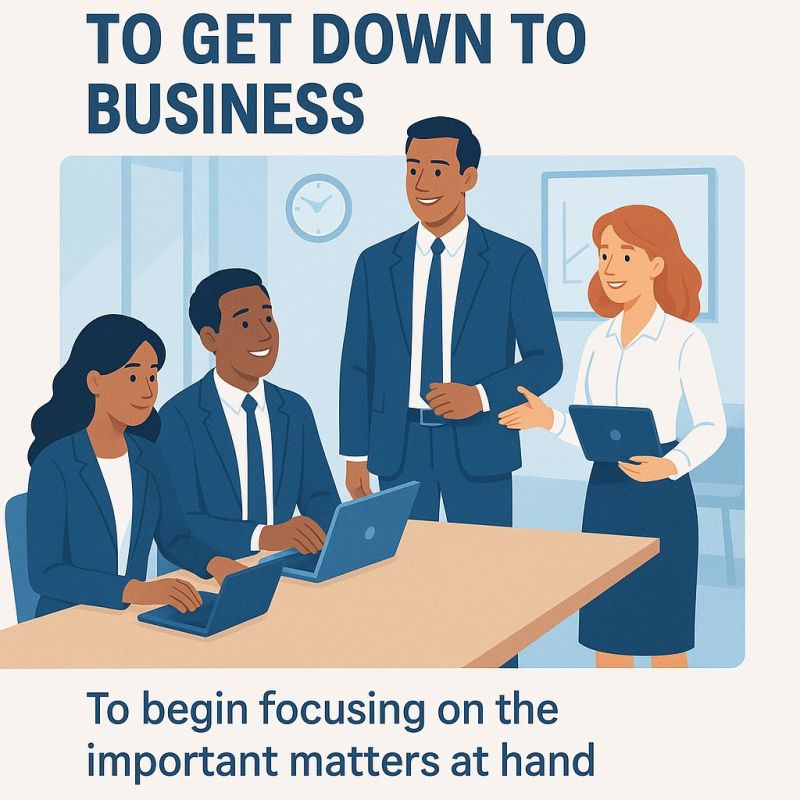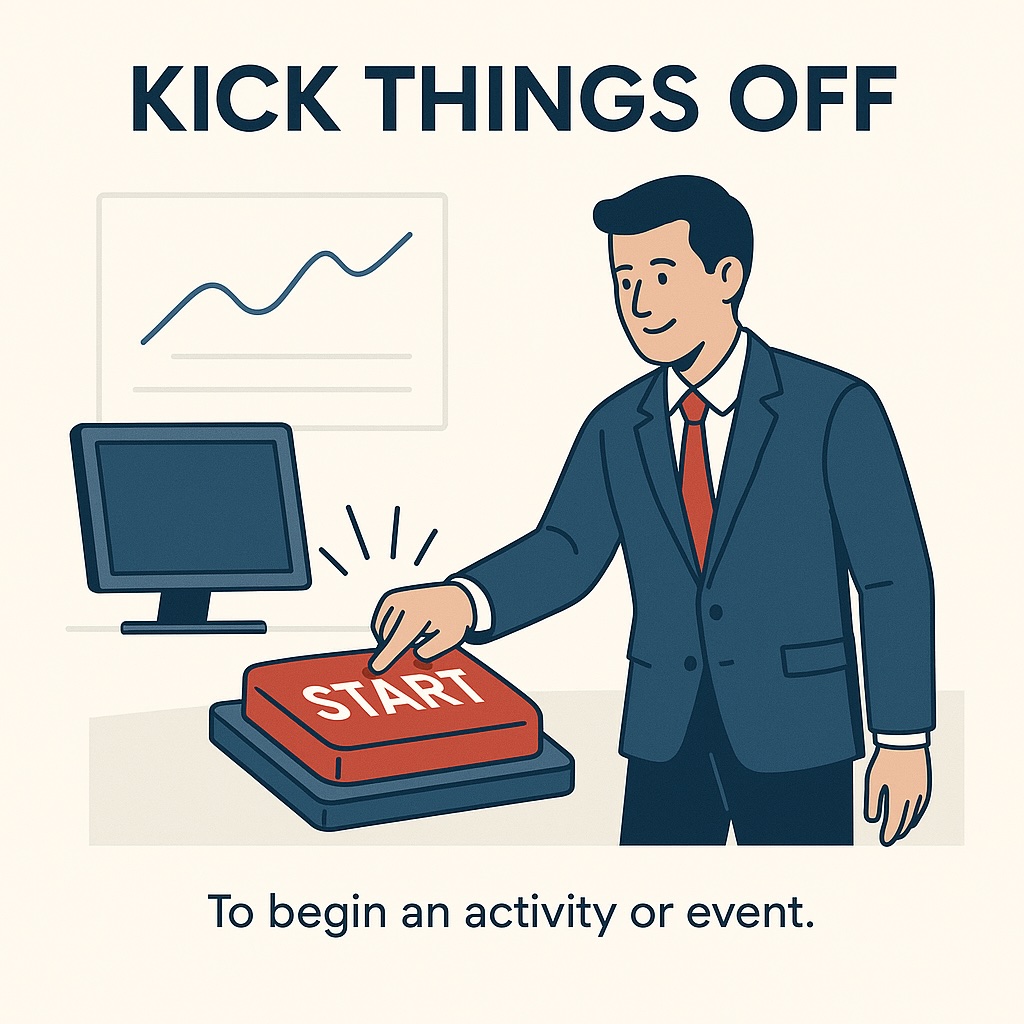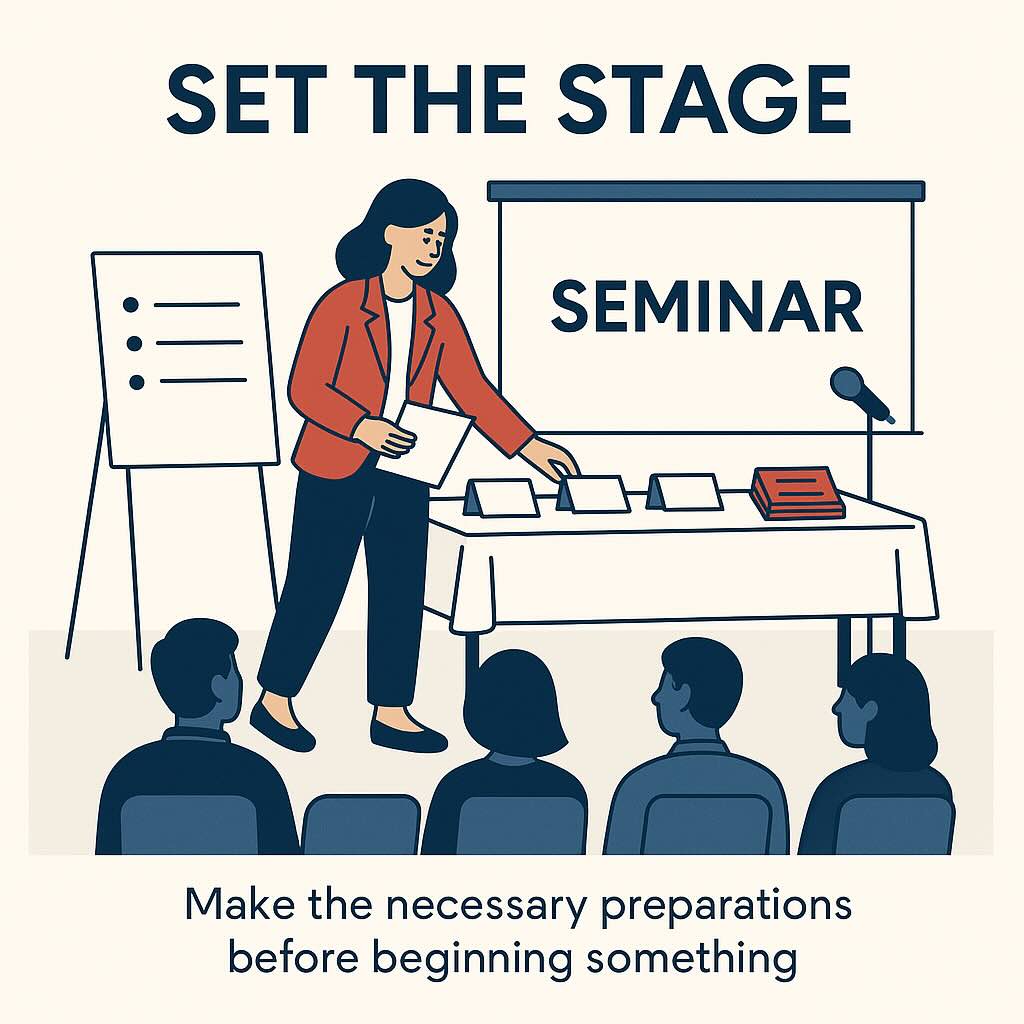| Put your thinking cap on (v) | To think hard and seriously about something in order to solve a problem or make a decision. | Before our meeting, let’s put our thinking caps on and come up with some creative solutions to the budget shortfall. |
| Chew the fat (v) | To have a casual and leisurely conversation, often to discuss ideas or solve problems. | Let’s chew the fat over lunch and see if we can brainstorm some solutions to the production delays. |
| Brainstorm ideas (v) | To generate a large number of creative ideas or solutions, especially within a group. | We need to brainstorm ideas for our new marketing campaign to attract more customers to our website. |
| Put our heads together (v) | To collaborate or work collectively as a group to solve a problem or come up with a solution. | Let’s put our heads together and figure out the best approach to handle the recent decline in customer satisfaction. |
| Nip it in the bud (v) | To stop a problem or issue in its early stages before it becomes more serious. | We need to nip this conflict in the bud before it escalates and affects the morale of the entire team. |
| Swimming upstream (v) | Facing difficulties or obstacles while trying to achieve something. | Implementing the new policy has been like swimming upstream; many employees are resistant to change. |
| Grasping at straws (v) | Trying anything and everything to find a solution, even if it seems unlikely to succeed. | We’re grasping at straws here; we’ve tried every possible approach to increase sales, but nothing seems to work. |
| Open a can of worms (v) | To introduce a complicated or controversial issue that will likely cause further problems or complications. | Bringing up the topic of layoffs at the staff meeting might open a can of worms we’re not prepared to deal with. |
| Drag your feet (v) | To delay or procrastinate in making a decision or taking action. | The project is falling behind schedule because some team members are dragging their feet on completing their tasks. |
| Cross that bridge when you come to it (v) | To deal with a problem, situation, or decision when and if it arises, rather than worrying about it beforehand. | Let’s not worry about potential setbacks now; we’ll cross that bridge when we come to it. |
| Kick the can down the road (v) | To delay dealing with a problem or making a decision, often leading to further complications in the future. | We can’t just kick the can down the road on this issue anymore; it’s time to address it head-on and find a solution. |
| Turn the tide (v) | To cause a significant change in the direction or course of events, usually for the better. | The implementation of the new management strategy has turned the tide for our company, leading to increased productivity. |
| Turn the corner (v) | To reach a point in a process or situation where progress is made, especially after a period of difficulty or struggle. | We’ve finally turned the corner in our negotiations with the client, and it looks like we’re close to reaching an agreement. |
| Light at the end of the tunnel (v) | A sign of hope or relief that a difficult or unpleasant situation will soon end or improve. | Despite the challenges, there’s finally a light at the end of the tunnel, and we’re optimistic about the future. |
| Get off the fence (v) | To make a decision or take a definite position on an issue, rather than remaining undecided or neutral. | It’s time to get off the fence and choose a direction for the project; we can’t afford to delay any longer. |
| Between a rock and a hard place (v) | Facing a difficult situation where there are no easy solutions or choices. | We’re between a rock and a hard place with this contract negotiation; either we accept the unfavorable terms or risk losing the deal altogether. |
| Go out on a limb (v) | To take a risk or put oneself in a vulnerable position for the sake of achieving something. | I’m willing to go out on a limb and invest in this startup because I believe it has great potential for success. |
| Put your neck on the line (v) | To take a risk or put oneself in a vulnerable or dangerous position, often for the sake of others or a greater cause. | I’m willing to put my neck on the line and propose the controversial idea because I believe it’s what’s best for the team. |
| Cross the Rubicon (v) | To reach a point of no return where one must make a decision or take action without the possibility of turning back. | By accepting the promotion, she crossed the Rubicon and committed herself to the challenges and responsibilities that come with the new role. |
| Stroke of genius (v) | An exceptionally intelligent or creative idea or decision that leads to a successful outcome. | Hiring an external consultant to conduct market research was a stroke of genius; it provided invaluable insights into our target audience. |





